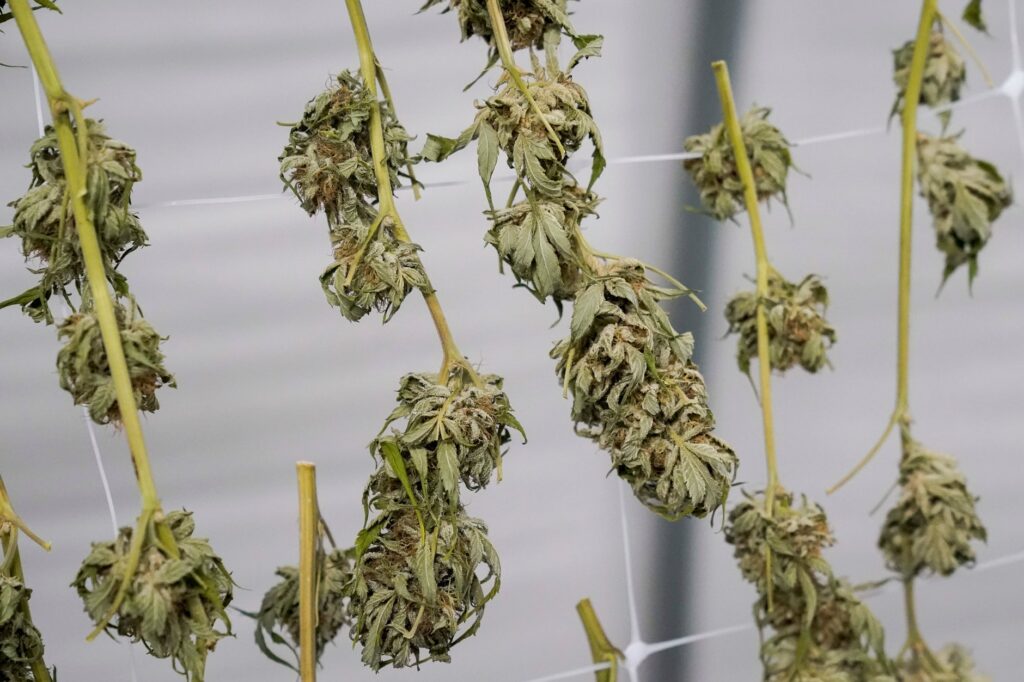MANHATTAN (CN) — Two cannabis dispensary companies asked the Second Circuit Thursday to halt New York from issuing retail dispensary cannabis licenses, claiming that the state’s Office of Cannabis Management and Cannabis Control Board unfairly favors New York residents over sellers from out of state.
The department uses a lottery system to process license applications. It assigns “extra priority” status to applicants who lived in a community disproportionately impacted by cannabis laws, make less than 80% of their county’s median income and were convicted of a cannabis-related crime in New York.
Cannabis companies Variscite New York Four and Variscite New York Five claim that favoring applicants who were convicted in New York, specifically, violates the federal dormant commerce clause, which prevents states from discriminating against interstate commerce.
“The state has affirmatively granted licenses and they are reserving those economic benefits for their own citizens, which is not permitted under the dormant commerce clause,” Jeffrey Jensen, an attorney for the plaintiff companies, said during oral arguments Thursday.
The companies appealed after a federal judge in the Northern District of New York denied their motion to enjoin the department from issuing licenses, finding that the commerce clause does not apply to state cannabis licenses.
On appeal, the plaintiffs point to a First Circuit decision that held federal law doesn’t contain a clear exemption for cannabis from the commerce clause.
“Unless the Second Circuit reverses the Northern District of New York’s order, it will create a circuit split with the First Circuit, the only circuit to address the issue to date,” the companies said in their brief.
Alexandria Twinem, an attorney for the state, argued that Congress has made clear that it doesn’t want market competition in the drug trade. Pointing to the federal Controlled Substances Act, she argued, “It wanted all of it to be forbidden.”
The lower court also denied the companies’ request after finding that they should have brought their complaint a year earlier, in November 2022, when the department released proposed regulations for the licensing program.
The companies countered that they were not aware of the regulations, particularly its “favoritism of New Yorkers,” until October 2023.
“In about two months, the appellants formed, organized, applied and brought this lawsuit,” Jensen said.
U.S. Circuit Judge Guido Calabresi, a Bill Clinton appointee, asked if the issue is ripe enough for the panel to take up now, since the department has not yet determined how many licenses will be available for applicants who were not granted the “extra priority” status.
“Standing exists, but we have a certain amount of discretion of deciding when we want to decide something,” Calabresi said.
The state argued that the case is not “presently ripe,” and agreed with the panel’s concerns that the appeals court should not decide yet on this case.
Twinem pointed out that the companies did apply for “extra priority” status and it has not yet been determined if their application will succeed.
But Calabresi countered that the specter of being rejected often is enough to qualify for standing.
“The fear of whether they would get that extra priority, the knowledge that they are doing this with a greater risk than others have of losing out,” Calabresi said.
U.S. Circuit Judge Dennis Jacobs, a George H.W. Bush appointee, and U.S. Circuit Judge Debra A. Livingston, a George W. Bush appointee, also participated in the panel.




 New York Teens Are Sipping Less, Choosing More Mindful Vices
New York Teens Are Sipping Less, Choosing More Mindful Vices Massachusetts Cannabis Reform: What’s Changing & Why It Matters
Massachusetts Cannabis Reform: What’s Changing & Why It Matters Maine Hikes Tobacco & Cannabis Taxes to Boost Budget
Maine Hikes Tobacco & Cannabis Taxes to Boost Budget